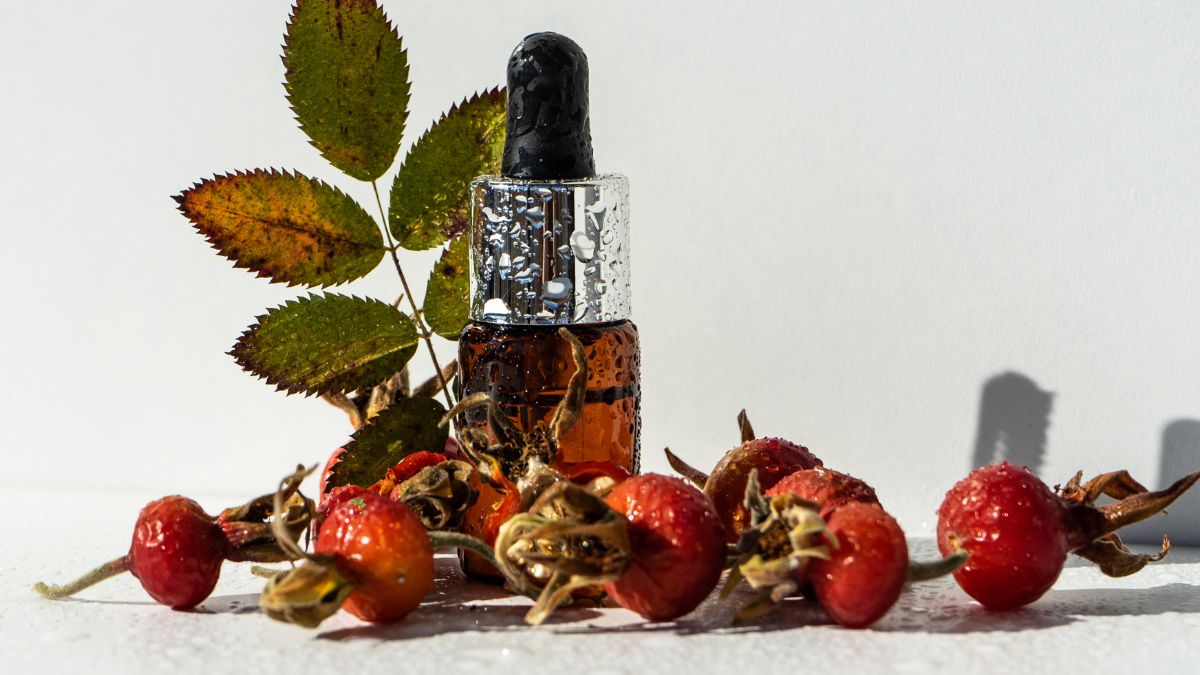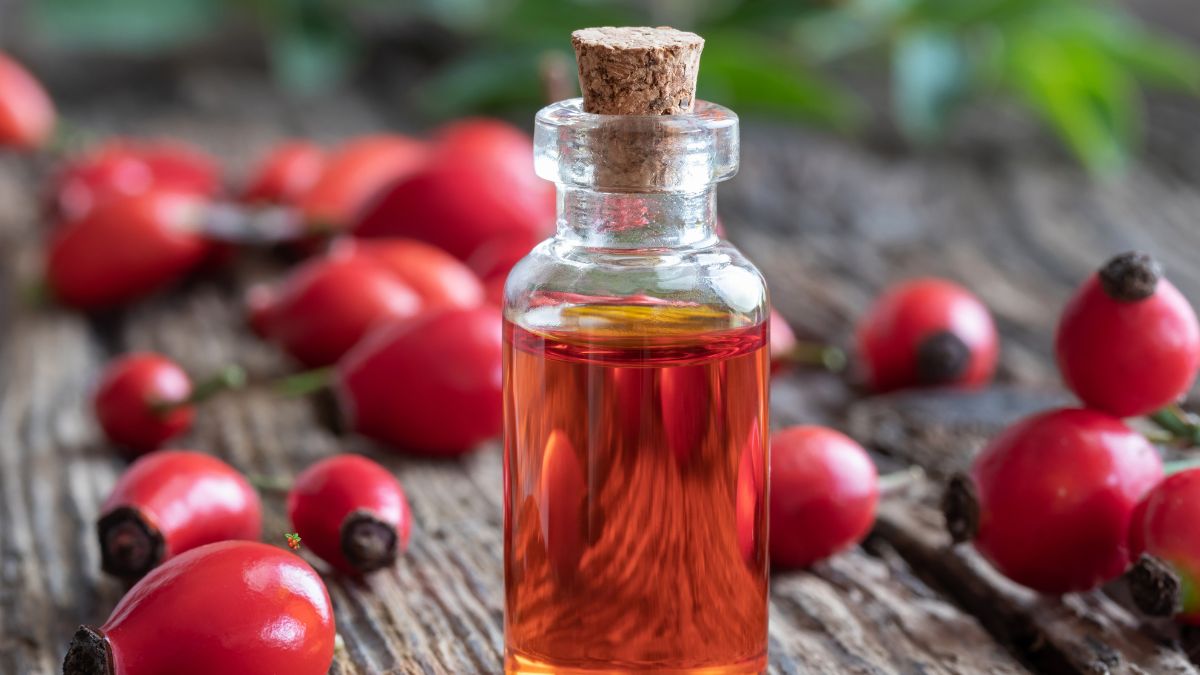- By Priyanka Munshi
- Wed, 26 Jun 2024 12:55 PM (IST)
- Source:JND
Did you know that rosehip oil is highly praised for its many skincare advantages, especially for people who suffer from acne? This natural oil, which comes from the seeds of the wild rose shrub, has potent healing qualities as it is full of antioxidants, vitamins A and C, and essential fatty acids. For people with oily or acne-prone skin, rosehip oil is especially helpful since it regulates oil production when applied topically.
Rosehip oil's anti-inflammatory qualities contribute to a more tranquil complexion by reducing the redness and irritation brought on by acne. It promotes cell turnover, which can help clear clogged pores and prevent future breakouts because it contains a high amount of retinol, or vitamin A. Furthermore, vitamin C promotes skin cell renewal and repair, which helps lessen the appearance of acne scars and enhance skin texture. Thus, we've compiled a list of some of the most incredible advantages of applying rosehip oil to acne.

Rosehip oil is a well-liked and advantageous option for obtaining and maintaining healthy, acne-free skin because of its natural origin and mild yet efficient action. (Image Credit: Canva)
Antimicrobial Qualities
Rosehip seed oil's antibacterial qualities can successfully fight the acne-causing bacterium S. aureus, reducing inflammation and avoiding spots and scarring.
Anti-Inflammatory Effects
Rosehip seed oil has anti-inflammatory qualities that protect skin from oxidative stress, reduce inflammation, and soothe acne lesions. It is rich in antioxidants such as phenolic acids, tocopherols, and carotenoids, according to NIH.

Rosehip oil contains antioxidants, vitamins A and C, and essential fatty acids, regulating oil production and promoting anti-inflammatory properties. (Image Credit: Canva)
Encourages The Healing Of Wounds
Rosehip oil can lessen acne blemishes and spots while healing wounds and improving the appearance of scars. For hormonal and cystic acne, a dermatologist's advice is recommended; however, for sporadic breakouts, it can be used as a preventive measure.
Regulates Sebum Production
Due to its high linoleic acid content, rosehip seed oil controls sebum release, which lowers inflammation and soothes acne lesions. Its 40%–56% content reduces inflammation, which helps to keep skin healthy and avoid acne, according to NIH.
(Disclaimer: This article is for informational purposes only. It is not a substitute for professional advice, diagnosis or treatment.)

